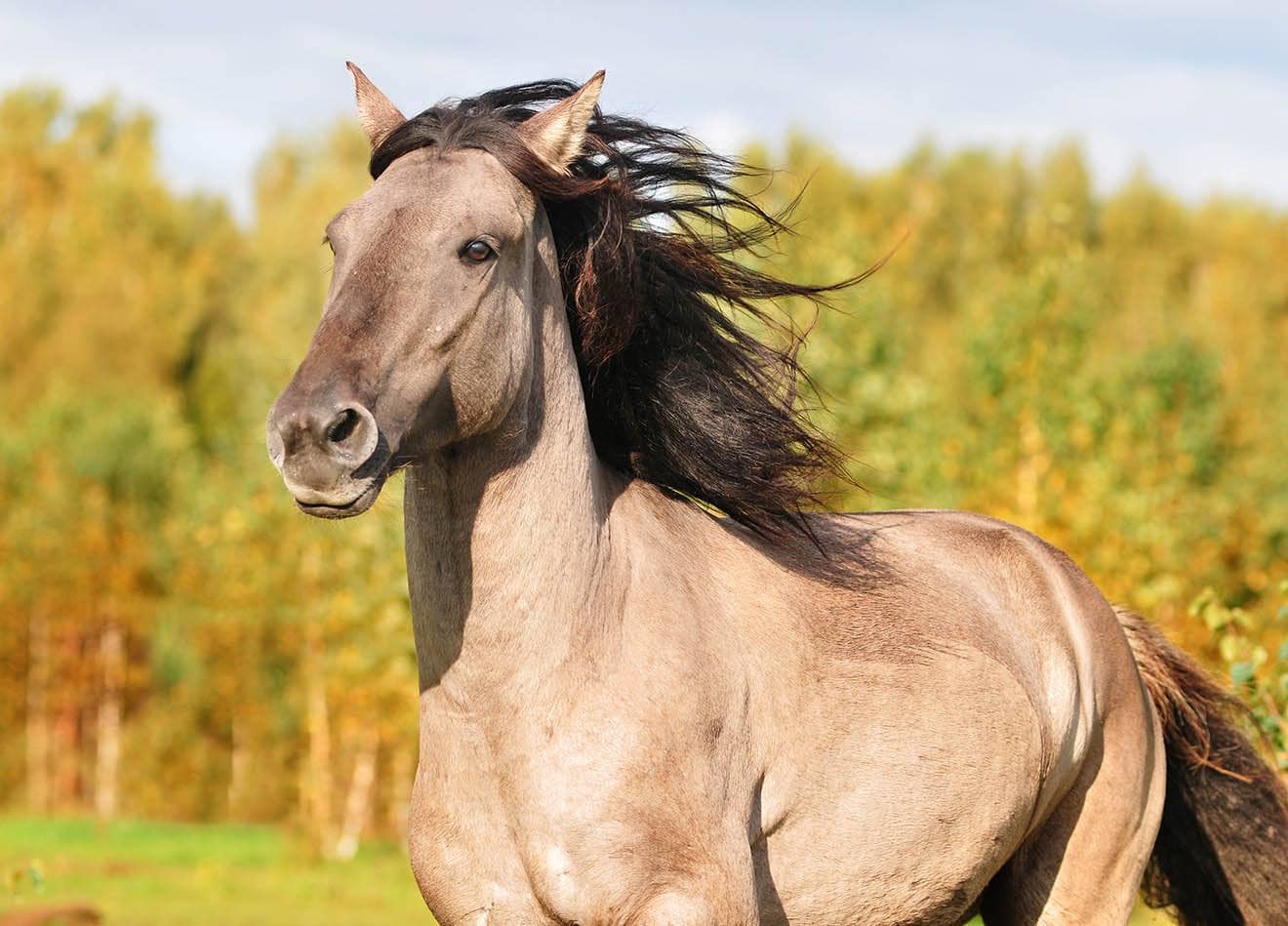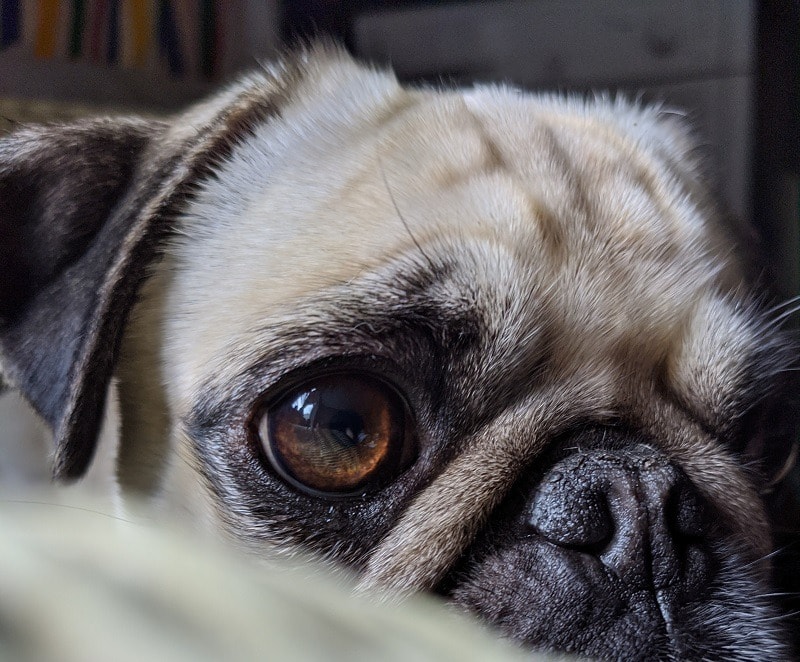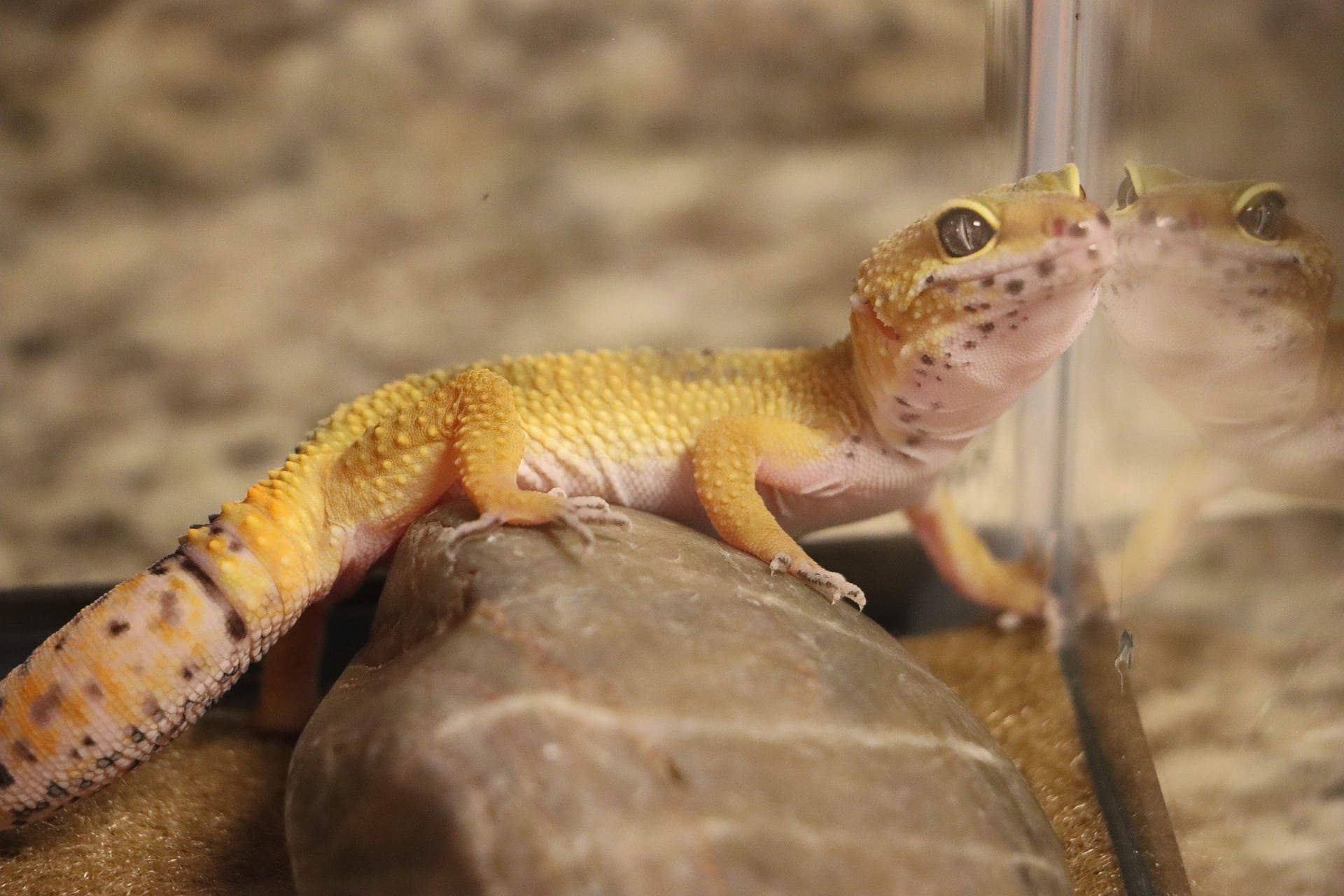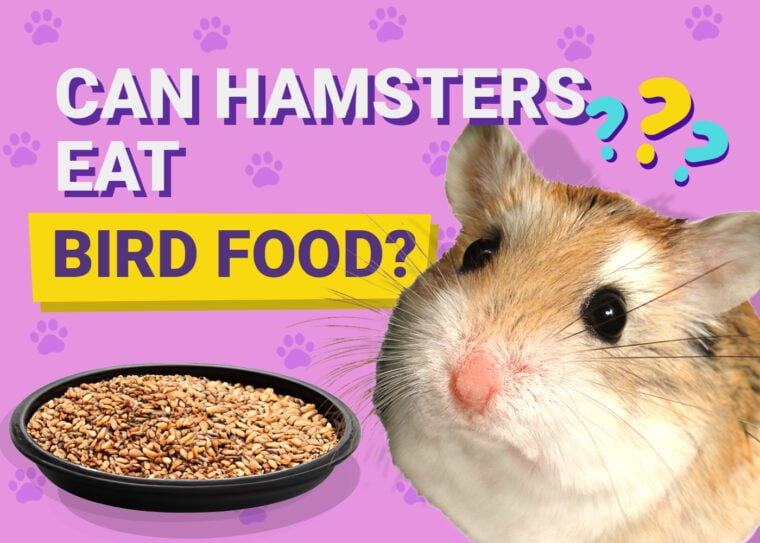
In the wild, hamsters eat a wide variety of plants, seeds, fruits, and even insects, and it is this variety of food that keeps them healthy and happy. As pets, owners often make the mistake of feeding them one type of food, and this can lead to an unbalanced and unhealthy diet. That said, the most common food fed to hamsters is commercial hamster pellets, and these specially made pellets should meet all their nutritional requirements.
Besides commercial pellets, hamsters also enjoy the occasional treat, and this can include fruits, nuts, and seeds. You may have a pet bird at home and wonder if you can feed some of your bird’s food to your hamster as a treat. But can hamsters eat bird food? Is bird food safe for hamsters? The answer is yes, as an occasional treat, bird food is usually fine to give your hamster. There are, however, caveats to be aware of, and the answer largely depends on the type of bird food that you want to treat your hamster with.
In this article, we take a look at the potential benefits and the potential hazards of giving bird food to your hamster. Let’s get started!
Different Types of Bird Food
First, it’s important to note that there are several different types of bird food commonly used by bird owners, all of which have varying degrees of quality. There is a wide variety of ingredients that fall under the umbrella of “bird food,” and this is an important consideration before giving it to your hamster.
The most common birdseed mixes contain varying amounts of the following:
Other than seed mixes, most bird owners will have commercial bird pellets too, and these can contain a wide variety of seeds, grains, fruits, and vegetables, depending on the brand, and are often fortified with vitamins and minerals that are essential for birds. While seed mixes are generally fine to give your hamster, these commercial pellets may contain ingredients that you do not want to give your hamster, so you should take extra care when reading the ingredient list.
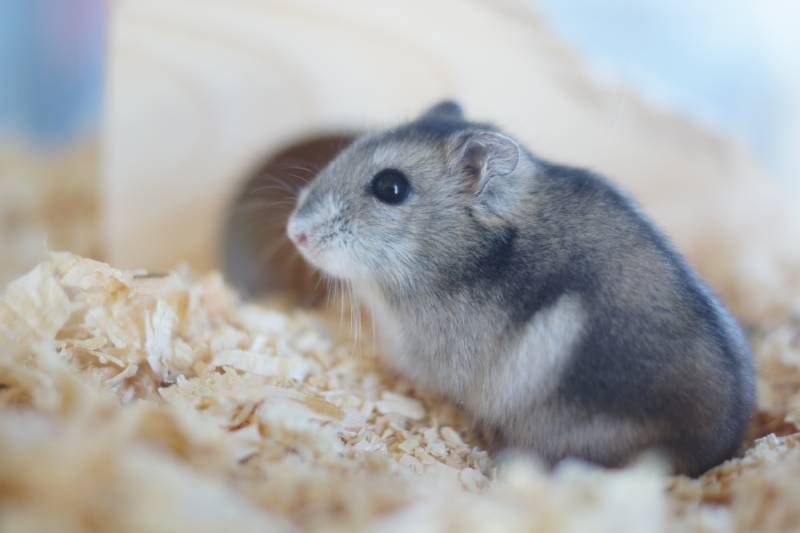
Potential Benefits of Feeding Bird Food to Hamsters
With the wide variety of seeds contained in bird foods, there are loads of benefits to be obtained by your hamster. That being said, seeds contain a large amount of fat and should only be given in moderation. Common seeds in bird food are sunflower seeds, which are a great source of vitamin C and vitamin A, protein, and fiber and contain vital minerals too, including calcium, iron, and magnesium. However, the high fat content can cause excessive weight gain, and vitamin C can cause diarrhea.
Pumpkin seeds are also a great addition to your hamster’s diet because their hard shell gives your hamster a great dental workout. They also contain a ton of beneficial vitamins and minerals, namely protein and calcium.
Potential Risks of Feeding Hamsters Bird Food
The number one concern with feeding birdseed to your hamster is the fat, and sunflower seeds and pumpkin seeds contain high amounts of fat, along with most other seed varieties. This is why they should only be given in moderation. A small handful of mixed seeds once every two or three days is suitable, but they shouldn’t be a part of your hamster’s daily diet. Also, bird food cannot replace your hamster’s regular diet because it does not contain the nutrients that they need to thrive. Hamsters need food high in fiber and low in fat, and bird food generally contains high amounts of fats from seeds.
Be sure to check the bird food mixes for other ingredients too. Some bird food varieties contain dried fruits, some of which may be harmful to your hamster in excess due to the large amounts of sugar. These dried fruits may also have artificial preservatives that are unhealthy for hamsters.
Commercial bird pellets may also contain artificial colorants and preservatives that you don’t want your hamster ingesting. Commercial bird pellets are specially designed for the nutrition of birds, not rodents, so a hamster would not be getting a balanced diet.

Foods to Avoid Giving Hamsters
There are some nuts, seeds, and fruits that are potentially toxic to hamsters and are occasionally found in some bird foods. These include:
Conclusion
As an occasional treat, bird food is perfectly safe to give hamsters. However, some brands and varieties of bird food may contain ingredients that are potentially harmful to hamsters, so be sure to check the ingredients carefully beforehand. We recommend avoiding commercial pellets and sticking to seed mixes, but even these should not be viewed as a replacement for your hamster’s regular diet.
In summary, a small handful of bird food is safe for hamsters and even potentially beneficial to their health, but just be sure to give it to them in moderation only.
Related reads:



